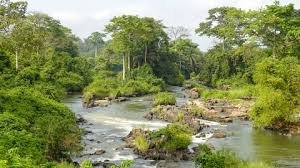UN Water Convention : Ivory Coast Joined

Ivory Coast joined the United Nations Water Convention, becoming the 10th African nation to do so.
- It is also known as the Convention on the Protection and Use of Transboundary Watercourses and International Lakes which was adopted in Helsinki in 1992 and entered into force in 1996.
- It is a unique legally binding instrument promoting the sustainable management of shared water resources, the implementation of the SustainableDevelopment Goals, the prevention of conflicts, and the promotion of peace and regional integration.
- It was originally negotiated as a regional framework for the pan-European region.
- It requires Parties to prevent, control and reduce transboundary impact, use transboundary waters in a reasonable and equitable way and ensure their sustainable management.
- Parties bordering the same transboundary waters have to cooperate by entering into specific agreements and establishing joint bodies.
- As a framework agreement, the Convention does not replace bilateral and multilateral agreements for specific basins or aquifers; instead, it fosters their establishment and implementation, as well as further development.
- It is a powerful tool to promote and operationalize the achievement of the 2030 Agenda for Sustainable Development and its SDGs.
- The United Nations Economic Commission for Europe (UNECE), which services the UN Water Convention.




